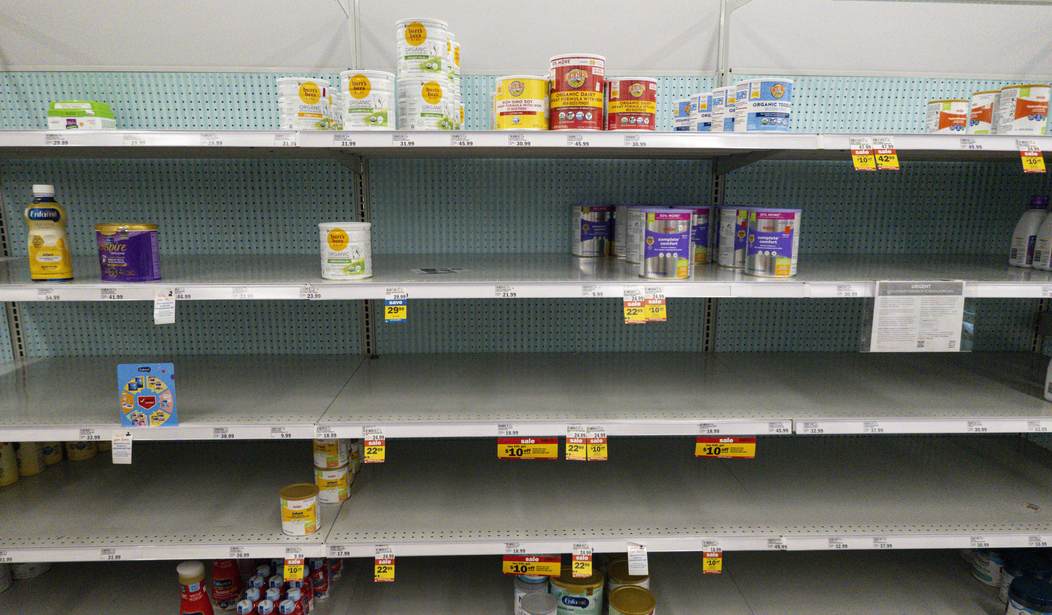Ever feel a bit stressed out by having too many choices?
How do you know which canned tomatoes to buy? Is Hostess really better than Little Debbie? That artisan cheese display is baffling!
It is too much for a stressed-out consumer to bear, says the ever-frustrating Atlantic Magazine.
I find The Atlantic stressful, given the fact that a significant fraction of their articles is actually thought-provoking, and a significant fraction is mind-bendingly stupid. I survive this challenge by picking and choosing the articles I read, or in case I read a truly weird or idiotic one I will write about it and get my anxiety out of my system.
The variety at the grocery store has become overwhelming, @flamingpetty writes. “Single-option stores” may be the solution. https://t.co/3iasgDwuVq
— The Atlantic (@TheAtlantic) June 25, 2023
This article is another in the long line of “the Soviet Union had it right” pieces I have read over the years, although none of them put it precisely like that since the brand of the Soviet Union is a bit tarnished by all that poverty and murder. Instead, the argument is simply a soft version of “people need to be told what to do” that has become so popular of late among the intelligentsia.
What is striking about this particular article, though, is the admission by the author that choice is just too hard for her, as if, perhaps, we should care about his fragility. I suppose every narcissist thinks that society should bend to their own will, so I shouldn’t be surprised, but still, it was striking:
On a recent afternoon, while running errands before I had to pick up my kids from school, I froze in the orange-juice aisle of a big-box store. So many different brands lay before me: Minute Maid, Simply, Tropicana, Dole, Florida’s Natural, Sunny D—not to mention the niche organic labels. And each brand offered juices with various configurations of pulp, vitamins, and concentrate. The sheer plenitude induced a kind of paralysis: Overwhelmed by the choices on offer, I simply could not make one. I left the store without any orange juice.
Uh, wat? If you can’t make a choice about which orange juice to buy, pick up a major brand with or without pulp depending upon your taste–you do know that, right?–and be done with it. That is the secret to brand success after all. You at least know they are “good enough” and consistent.
According to the American Time Use Survey, an average grocery trip takes more than 40 minutes. That may not sound like much, but the task can feel overwhelming and time-consuming in the midst of a busy day, especially because every trip consists of a plethora of decisions. Through this lens, what seems like a modern benefit—100 different kinds of ice cream! Every imaginable chip flavor! Hot-dog buns sliced on the side or on the top!—can become a bit of a burden.
Adam Fleming Petty gets paralyzed by choice. Hot dog buns are too difficult to purchase. “Tell me what to do!”
A normal person would see a therapist, but an intellectual wants to completely reform society. As he said, “People need less choice, not more.”
No. Adam needs less choice, not “people.” What Adam doesn’t seem to realize that getting shelf space in a grocery store is hideously competitive, and not a single product on the shelves (besides the newest ones being tried out) is there without a lot of customers wanting to buy them.
Not one. Shelf space is as valuable as a gate at an airport. Planes that don’t make money for the airline don’t get a gate; products that don’t sell soon find them off the shelf. No grocery store wants space dedicated to products that don’t move. The profit margins are tight and space is limited, even in a big store.
And if it is selling, some people choose that product over others. Q.E.D.
In fact, the basic task of feeding ourselves is replete with microdecisions. A study at Cornell University found that the average American consumer makes about 227 choices regarding food every day, related to when, where, what, and how much to eat, as well as with whom to eat. Making those selections in the face of superabundance can have negative effects. Barry Schwartz, the psychologist and author of The Paradox of Choice, connects consumer paralysis, like my petrified state in the orange-juice aisle, to an increase in dissatisfaction. Even when you manage to make a choice, you can find yourself wondering whether you made the right one. Sure, that Chobani strawberry yogurt was pretty good, but what if you’d gotten Oikos instead? Or Fage? Or those Yoplait Whips?
They have drugs for this problem. Or counseling. And, as Adam found out, stores that cater to the terminally neurotic, like Aldi, although even there you have choices in many things. Should you get granola with or without nuts? Which dried fruits?
Mercifully, there exists a portion of the retail sector I think of as the “single-option store,” or SOS. The offerings at these establishments are deliberately whittled, typically leaving only a handful of each item to choose from. Perhaps the paradigmatic SOS is Aldi. It sells the basic grocery staples, whether produce or pasta, while largely eschewing name brands. Instead, it provides its own line of items. Its in-house orange-juice brand, Nature’s Nectar, makes up the majority of the stock. The only real decision I have to make is how much pulp I want (none, obviously) or if I want pineapple juice mixed in (absolutely not).
Problem solved, right? Capitalism is so great that you even have choices to go to stores without choices! Or at least almost no choices.
Choice solves the choosing problem, right?
Nope. Not even single-option stores actually solve the problem.
While the SOS model reduces certain frustrations, it is not totally exempt from them. Any Trader Joe’s shopper will know the annoyance of searching in vain for some specialty item needed to complete a recipe, like a particular sauce or cooking wine. A person may also not like an SOS brand’s particular take on an item. Cottage cheese, for example, is hard to get right, as the slightest difference in texture can render it unpleasant to me. The only brands I like aren’t sold at Aldi; the store’s option just doesn’t measure up.
Gee. Hmm. Do you mean that having a choice in what cottage cheese to buy–something that you, at least, care deeply about–is a good thing?
Perhaps the problem here isn’t choice, but the actual diversity of desires and tastes that exist within the 330 or so million people in the United States, who turn out not to be uniform in their desires, not cogs in some great machine that can be managed by some bureaucrats who get to choose for us.
Just perhaps the problem isn’t with having choices, but with being unable to make choices. In the cases where one cares deeply–say cottage cheese–choices are OK. They are just awful when other people have similar discrimination on products different from one’s own.
Intellectuals often are often narcissistic enough to project their own likes and dislikes into a universal, when in fact they are just the product of their own idiosyncrasies. Can be annoying that there are so many choices when you just want some canned tomatoes? Only mildly. But when a person like me wants San Marzanos for that extra special spaghetti sauce, I appreciate that I can find them. If you want cheaper tomatoes in a can, have at it.
In general market systems actually work reasonably well precisely because they cater to the various preferences of people pretty well. The impulse to impose uniformity for one’s own convenience is authoritarian, not benevolent.








Join the conversation as a VIP Member